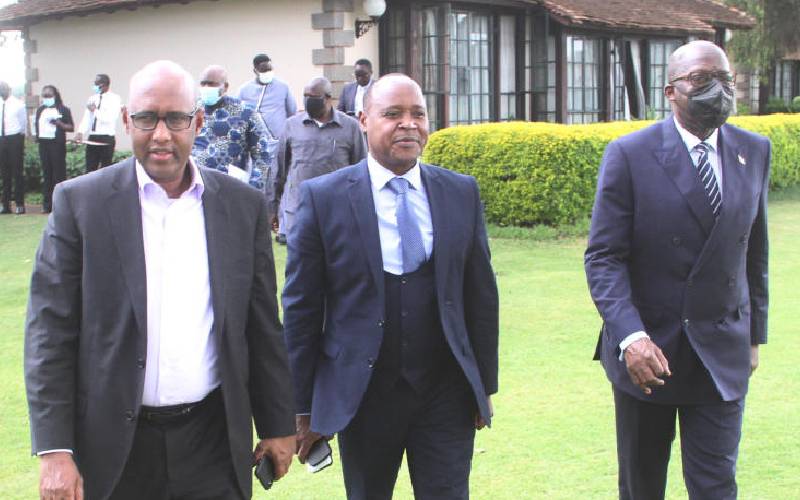
Ministry of East Africa Community and Regional Development CS Adan Mohamed, East African Community Secretary-General Dr Peter Mutuku Mathuki and DRC Vice prime minister Christophe Lutundula Apala Pen'Apala make their way to officially launch the Sixth East African Community development strategy.[Edward Kiplimo,Standard]
The benefits of a functional political, economic and geographical regional block cannot be gainsaid. The European Union (EU), besides a few glitches along the way, exemplifies what a union of nations can achieve. The EU has provided a high quality of life for its residents and helped pull up poor and small nations in the union.